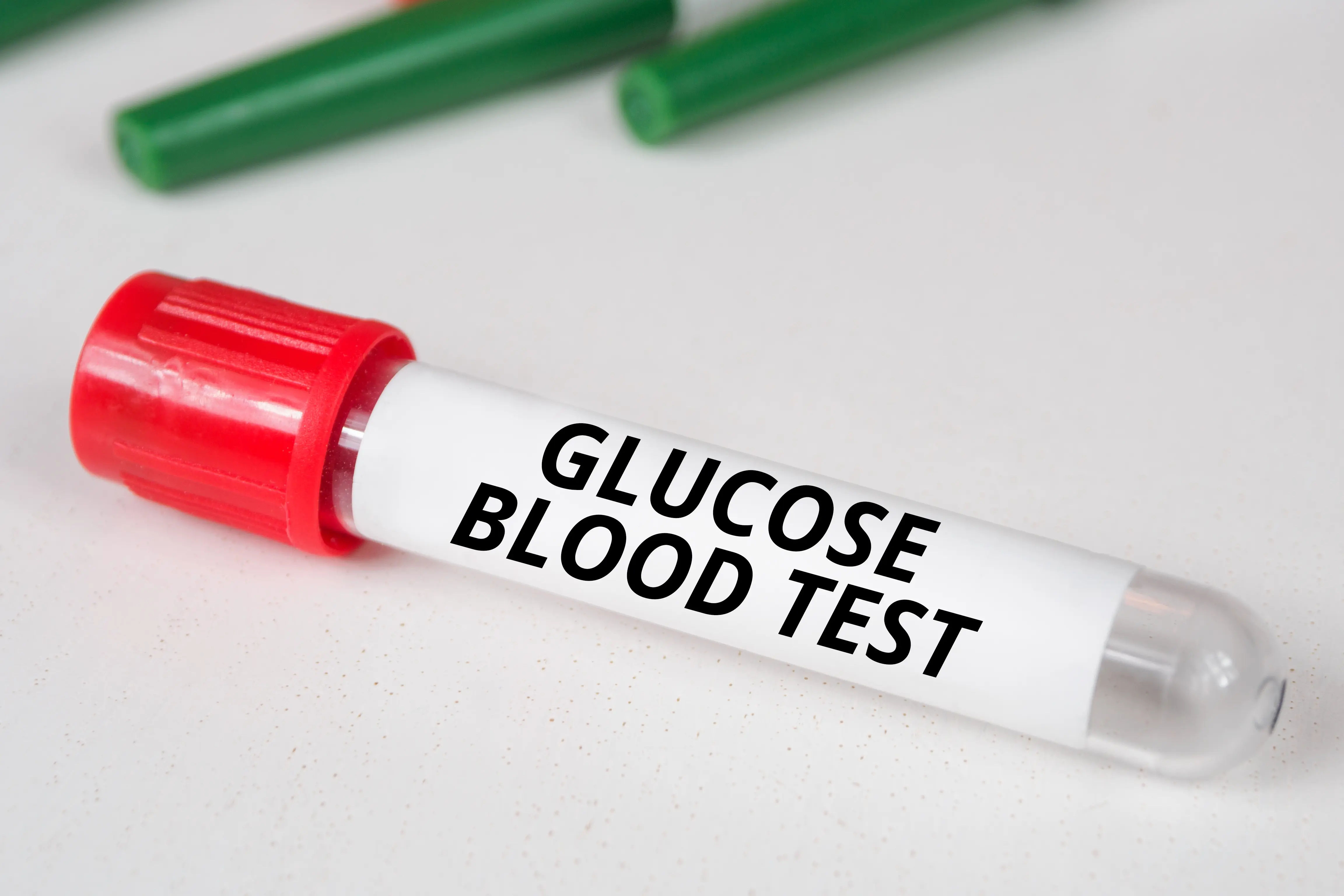Too Painful Periods? Get These Blood Tests to Check
Severe period pain isn't normal. Learn which blood tests—like hormone and thyroid panels—can uncover the root causes of painful periods, including PCOS and hormonal imbalances.

Written by Dr. Dhankecha Mayank Dineshbhai
Reviewed by Dr. D Bhanu Prakash MBBS, AFIH, Advanced certificate in critical care medicine, Fellowship in critical care medicine
Last updated on 9th Sep, 2025
.webp?tr=q-80,f-webp,w-350,dpr-2,c-at_max 700w)
If you've ever felt like your period pain is so intense it stops you in your tracks, you're not alone. While a bit of discomfort during your menstrual cycle is common, excruciating pain that forces you to miss work, school, or important life events is absolutely not normal. This severe pain, often called dysmenorrhea, can manifest as debilitating cramps, sharp backaches, headaches, or even nausea and dizziness. It can make you feel helpless and significantly impact your daily life and overall well-being.
For too long, many women have been told to simply "push through" or that intense period pain is just an unavoidable part of womanhood. However, this persistent, overwhelming pain could be your body's way of signalling an underlying issue, such as a hormonal imbalance, Polycystic Ovary Syndrome (PCOS), or Endometriosis. Just masking the pain with medication won't address the root cause, which can lead to ongoing discomfort and potentially more significant health concerns down the line. Fortunately, targeted blood tests can be a powerful first step in uncovering these hidden factors. By understanding what's truly driving your painful periods, your doctor can help you find an accurate diagnosis and create a personalised treatment plan for genuine, lasting relief. This guide will explore the various blood tests that can help identify the triggers behind your painful periods.
Beyond the Cramps: What Your Period Pain Might Be Telling You
Menstrual pain typically arises from uterine contractions that help shed the uterine lining. These contractions are triggered by hormone-like substances called prostaglandins. While some prostaglandins are necessary for this process, an excess can lead to more intense and painful contractions.
There are two main types of dysmenorrhea:
- Primary Dysmenorrhea: This is the more common type, where there's no underlying medical condition causing the pain. It's often due to an overproduction of prostaglandins. While often manageable with over-the-counter pain relievers and heat, severe primary dysmenorrhea can still be disruptive.
- Secondary Dysmenorrhea: This type of pain is caused by an identifiable underlying reproductive condition. The pain often starts later in life than primary dysmenorrhea and may worsen over time. Conditions commonly associated with secondary dysmenorrhea include:
- Endometriosis: A condition where tissue similar to the uterine lining grows outside the uterus, causing inflammation and pain.
- Adenomyosis: A condition where the uterine lining tissue grows into the muscular wall of the uterus.
- Uterine Fibroids: Non-cancerous growths in the uterus.
- PCOS (Polycystic Ovary Syndrome): A hormonal disorder that can lead to irregular periods, hormonal imbalances, and sometimes painful periods.
- Pelvic Inflammatory Disease (PID): An infection of the female reproductive organs.
When period pain is severe, persistent, or accompanied by other concerning symptoms, it's crucial to look beyond typical pain management. In such cases, blood tests that assess hormone levels and other internal markers can help uncover the root causes and guide more effective treatment.
When to Consider Blood Tests for Painful Periods
If your period pain feels like more than just "normal" discomfort, certain signs suggest it's time to talk to your doctor about blood tests. Consider these tests if you experience:
- Pain that's severe or disrupts your life: This includes pain that makes you miss work or school, requires strong pain medication, or keeps you from your usual activities.
- Pain that's getting worse: If your menstrual pain is becoming more intense with each cycle or isn't helped by typical treatments (like over-the-counter pain relievers or birth control pills).
- Persistent pain or other concerning symptoms: Such as pelvic pain outside of your period, pain during intercourse, unusually heavy or irregular bleeding, or other hormonal signs like excess hair growth, severe acne, unexplained weight gain, fatigue, or difficulty getting pregnant.
If any of these sound familiar, discussing specific hormone tests and other lab markers with your doctor can help pinpoint the exact cause and lead to a more effective treatment plan.
Key Blood Tests to Identify Causes of Painful Periods
When investigating severe or persistent period pain, specific lab tests can pinpoint underlying hormonal imbalances or conditions like PCOS and thyroid dysfunction. These blood tests offer crucial insights beyond just your symptoms.
1. PCOS + Hormone Panel: Your Comprehensive Check
A PCOS + Hormone Panel is often the first line of investigation when painful periods are suspected to have a hormonal origin. This comprehensive panel typically includes tests that help diagnose PCOS and assess overall hormonal balance.
- Androgen Levels (Testosterone, DHEA-S, Androstenedione): Elevated levels of these "male" hormones are a hallmark of PCOS and can contribute to symptoms like acne, excess hair growth, and menstrual irregularities, which can sometimes include painful periods.
- LH (Luteinizing Hormone) and FSH (Follicle-Stimulating Hormone) Ratio: An elevated LH:FSH ratio is often seen in PCOS, indicating an imbalance that affects ovulation.
- Prolactin: High prolactin levels can interfere with ovulation and menstrual regularity, potentially contributing to painful or absent periods.
- AMH (Anti-Müllerian Hormone): AMH levels are often elevated in women with PCOS, reflecting the increased number of small follicles in the ovaries.
- Sex Hormone-Binding Globulin (SHBG): SHBG binds to sex hormones, making them inactive. Low SHBG can mean more "free" (active) hormones, potentially contributing to symptoms.
- Fasting Insulin and Glucose: PCOS is often associated with insulin resistance, where the body's cells don't respond effectively to insulin. High insulin levels can exacerbate androgen production and worsen PCOS symptoms, including period pain.
- HbA1c (Glycated Haemoglobin): This test provides an average of your blood sugar levels over the past 2-3 months, helping to identify prediabetes or diabetes, which are common in women with insulin resistance and PCOS.
2. Thyroid Function Tests
The thyroid gland plays a crucial role in regulating metabolism and hormone production throughout the body. An imbalance in thyroid hormones can significantly impact your menstrual cycle and contribute to symptoms like fatigue, weight changes, and, yes, painful periods.
- TSH (Thyroid-Stimulating Hormone): This is the primary test for assessing thyroid function. High TSH indicates an underactive thyroid (hypothyroidism), while low TSH suggests an overactive thyroid (hyperthyroidism). Both can affect your menstrual cycle.
- Free T3 and Free T4: These tests measure the active forms of thyroid hormones in your blood. Abnormal levels can confirm a thyroid disorder and help determine its severity.
The results of these specific blood tests, when interpreted by your doctor in conjunction with your symptoms, medical history, and a physical examination (including a pelvic exam and potentially imaging like an ultrasound), provide an accurate diagnosis, guiding a targeted and effective treatment plan for your painful periods.
Get Tested Easily with Apollo 24|7
When your doctor recommends diagnostic tests to understand the cause of your severe period pain, choosing a trusted and convenient testing provider is paramount. Apollo 24|7 simplifies this process by offering a wide range of reliable lab tests. With accurate results delivered quickly, you and your doctor can work together to identify any underlying factors contributing to your pain and plan the right treatment.
Here’s why choosing Apollo 24|7 for your period pain investigations is a smart step:
- Comprehensive Test Panels: Apollo 24|7 facilitates access to a broad spectrum of diagnostic tests directly relevant to painful periods, including crucial hormone panels (like the PCOS + Hormone Panel), thyroid function tests, and inflammatory blood markers.
- NABL-Accredited Labs: Tests are conducted in high-quality labs certified by the National Accreditation Board for Testing and Calibration Laboratories (NABL), ensuring trusted accuracy and reliability for your results.
- Home Sample Collection: No need to travel; get blood samples collected conveniently from your home at a time that suits you, offering privacy and comfort.
- Easy Online Booking: Book your tests effortlessly through the user-friendly Apollo 24|7 app or website with just a few clicks.
- Fast Digital Reports: Receive secure, detailed reports swiftly online, delivered directly to your device, ready for your doctor to review.
- Trusted Brand: Benefit from the trusted expertise and healthcare legacy of Apollo Hospitals Group, one of India’s most respected medical networks.
By choosing Apollo 24|7, you gain access to high-quality, reliable, and convenient diagnostic services that can significantly streamline your journey towards understanding and effectively managing your painful periods.
Get These Tests To Get A Yourself Checked up
Conclusion
Excruciating period pain is not something you have to silently endure. It often signals underlying hormonal imbalances or conditions like PCOS, Endometriosis, or thyroid dysfunction. Relying only on pain relievers without investigating internal triggers can lead to ongoing frustration and insufficient relief.
Blood tests for period cramps, including a comprehensive PCOS + Hormone Panel and thyroid function tests, are invaluable tools. These tests help your doctor accurately identify the specific causes behind your persistent pain. Obtaining an accurate diagnosis is key to effective and lasting pain management, allowing for a tailored treatment plan that addresses the root cause, leading to less pain, better overall health, and renewed confidence. If you struggle with severe or persistent period pain, consult your doctor to explore if these tests can provide the answers you need.






